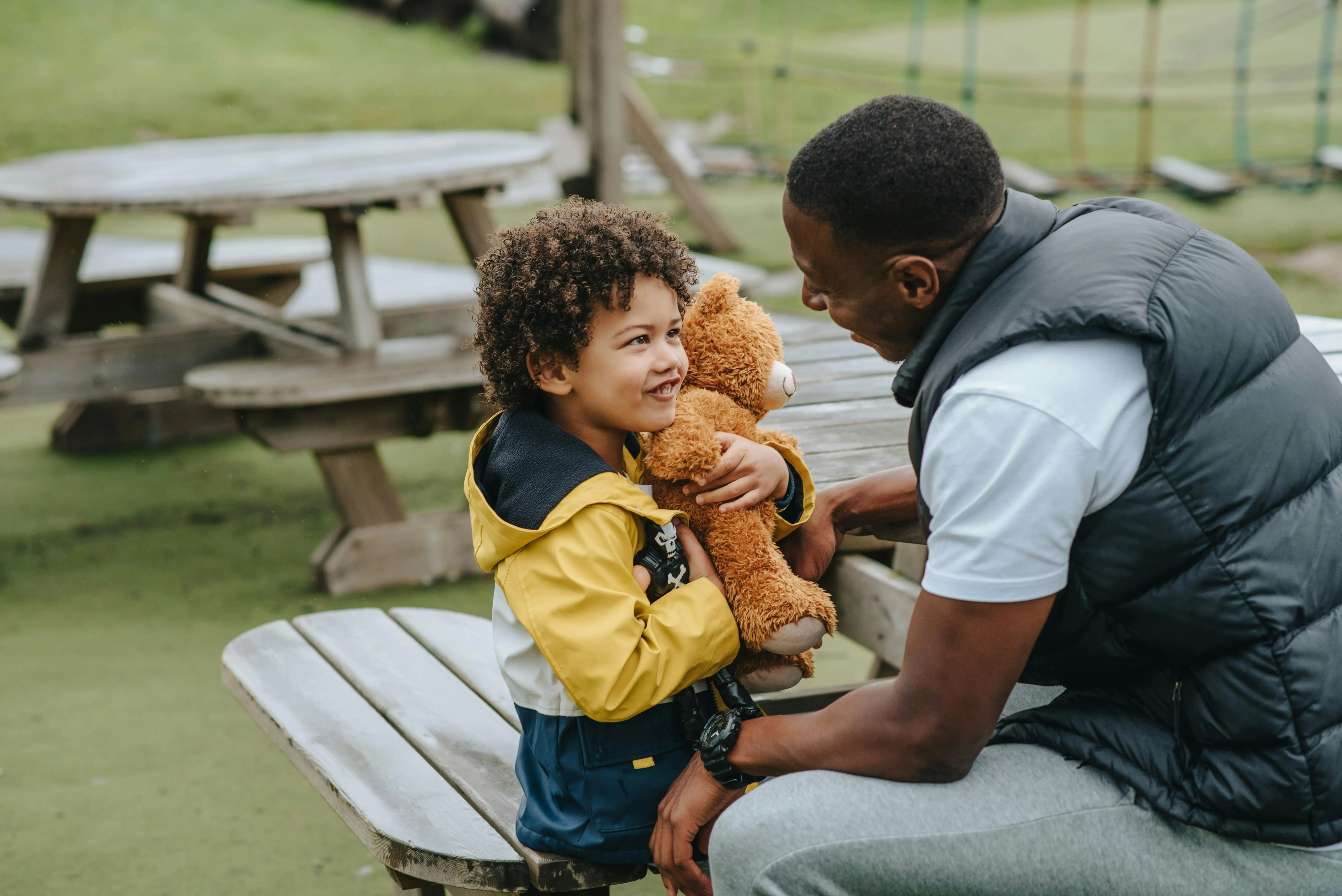Preparing for puberty
July 16, 2025

The following information and resources have been provided courtesy of The Lurie Center for Autism, a program of Massachusetts General Hospital and Mass General for Children.
The Lurie Center for Autism is committed to advancing treatments for and knowledge about Autism Spectrum Disorder (ASD) and other developmental disorders, and translating these discoveries into exceptional clinical care. A program of Massachusetts General Hospital and Mass General for Children, The Lurie Center is a multidisciplinary treatment, research, training, and advocacy organization dedicated to supporting individuals and their families across the lifespan.
This resource is intended to provide information so that you can be better informed. It is not a substitute for medical advice and should not be used to treat any medical conditions.
Preparing for puberty
Helping to prepare a child for puberty is a daunting, but important task for any parent, and for the parents of children with Autism, it can be even more challenging. Many children with Autism require additional time, specialized support, and direct instruction to build independent self-care skills.
In addition, youth with ASD are at higher risk of physical or sexual abuse, neglect, or exploitation (Gabriels, 2007; Sevlever et al, 2013), making it critical that we prepare our children to understand and protect their own body, particularly as they grow. Finally, some youth with ASD may exhibit inappropriate or problematic sexual behaviors throughout the course of development. These problematic behaviors may include atypical behaviors that are not sexualized but may be interpreted as such (e.g., sensory interest in touching hair, skin, or clothing of others), socially inappropriate sexual behaviors that may be misinterpreted as intentional or deviant (e.g., intrusive or inappropriate physical advances or contact).
For all of these reasons, it is critical to be proactive about preparing your child for puberty and all the physical, health, and safety issues that come along with this stage of development.
When should I start to prepare my child for puberty?
It is never too early to start teaching boundaries, consent, & safety. Building these skills, knowledge, and independence early will help to reduce later risks for your child. The more your child can do and communicate independently, the safer and more prepared they will be to manage the bodily changes and risks of growing up.
When your child is young, they may require more time and support to learn a number of self-care skills, like toileting and bathing, and sometimes this can create a pattern of prompt dependence or reliance on adult caregivers for basic needs, which can place children at increased risk of harm later in life. For example, teaching a child to close and lock a public bathroom stall is a critical safety skill, but this can take a back seat when your child needs help to clean themselves after using the bathroom.
In general, it is best to be proactive. Don’t wait until issues come up. Instead, try to anticipate your child’s readiness and learning needs, and work to teach them new skills each step of the way. If you start to build a foundation of skills and knowledge early, puberty won’t feel quite so overwhelming. For example, if you start to teach the proper terms for genitals early on and establish boundaries around public vs. private behaviors at age 3 or 4 years, your child will be better prepared for the more complex and nuanced situations that arise in adolescence.
So, what does my child need to know and when?
Remember, each child’s developmental trajectory is unique. Some children may require extra time or support to learn new skills. Meeting your child where they are at and slowly building skills over time will set them up for success. Here are some tips for each stage of life!
Early childhood (ages 2–4)
- Teach about body parts and anatomy, including difference between males and females
- Teach correct names for body parts
- Teach consent – ask for permission before touching and do not force physical contact (e.g., hugs, kisses), especially with relatives and strangers
- Provide clear instructions and modeling for “public” vs. “private” behaviors (e.g., practice dressing in the bedroom, not in the living room)
School aged years (ages 5–8)
- Make sure your child knows that no one can touch their body without permission – only doctors and parents can touch private parts
- Teach the function of body parts
- Build independence with toileting and self-care
- Teach your child to clean their own genitals while bathing
- Teach your child how to lock and unlock a bathroom stall independently
- Provide direct instruction for how/who to ask for help
- Assertiveness training and how to say “no”
- Teach boundaries in friendships and other relationships (e.g., we always ask before we hug or kiss our friends)
- Teach children to ask before touching other people – practice with people they see often like relatives and teachers
- Continue to re-direct “public” vs. “private” behaviors such as masturbation and self-stimulatory behaviors
- Start to preview puberty and expected body changes
- Build basic understanding of human reproduction
Preteens (ages 9–12)
- Continue to provide education about puberty, reproduction, and physical body changes
- Teach your child about the impact of hormones on our body and emotions
- Build consistency and independence with hygiene skills (including things such as your child’s ability to manage menses, clean their own genitals)
- Normalize sexual attraction and sexual thoughts/feelings – validate, don’t downplay your child’s crushes or excitement about attraction
- Teach internet safety (including how to manage bullying, sexting, and pornography)
- Be mindful about messages about body image – focus on body neutrality if your child is anxious about change
Teenagers (13–18+)
- The unwritten social rules of sexual and relationship behaviors are highly complex and are often not explicitly taught, particularly to youth with ASD. Social and intuitive learning of these things may be limited in ASD, so for teenagers, we need to be much more direct, concrete, and explicit.
- Provide direct instruction about menstruation, nocturnal emissions, and masturbation
- Teach about consent in romantic and sexual relationships
- Teach how alcohol and drugs impact judgement
- Role play how to respond to peer pressure
- Scripts and social stories may be helpful
What if this still feels too overwhelming?
Preparing for puberty takes time and often requires the support of caregivers, teachers, and therapists working together. Don’t hesitate to ask your IEP team to include your child in all “Health” and “Sex Education” classes at school. If needed, request modifications. Not all children can access a standard sex education or health curriculum but advocate for an appropriately modified alternative.
Also, try to find low pressure times to talk with your child about uncomfortable subjects (i.e., while riding in the car, or going for a walk). This can reduce the stress and pressure for both you and your child.
Finally, remember to use your team and ask for help! Check-in with your child’s therapists and, when appropriate, incorporate goals related to puberty and independence into your child’s ABA and OT treatment plans.
Resources
Fortunately, there are many resources widely available online to support you and your child through puberty and beyond. We encourage you to take a look at some of our favorite resources.
- Vanderbilt Healthy Bodies Toolkits: https://vkc.vumc.org/healthybodies/
- Autism Treatment Network Puberty Toolkit: www.autismspeaks.org/tool-kit/atnair-p-puberty-and-adolescenceresource
- Organization for Autism Research Sex Ed for Self-Advocates: https://researchautism.org/sex-ed-guide/
- The Book of Happy Positive Confident Sex for Adults on the Autism Spectrum and Beyond! :www.neurodiversitypress.com/product/the-book-of-happy-positive-and-confident-sex-for-adults-on-the-autismspectrum-and-beyond/
- National Autistic Society Sex Education Guide for Parents: www.autism.org.uk/advice-and-guidance/topics/familylife-and-relationships/sex-education/parents-and-carers
Revised 10/2022.
This is a div block with a Webflow interaction that will be triggered when the heading is in the view.
















.png)

